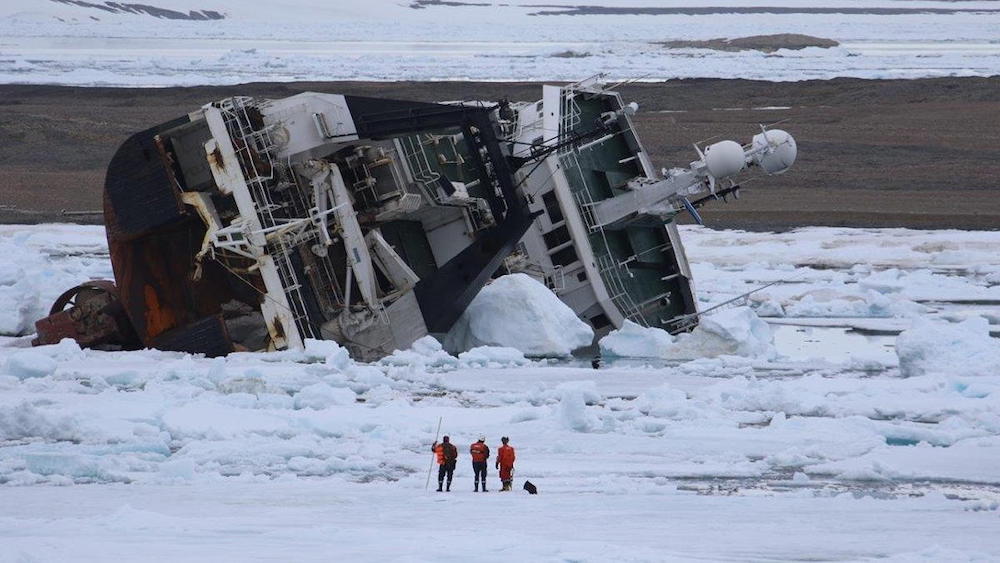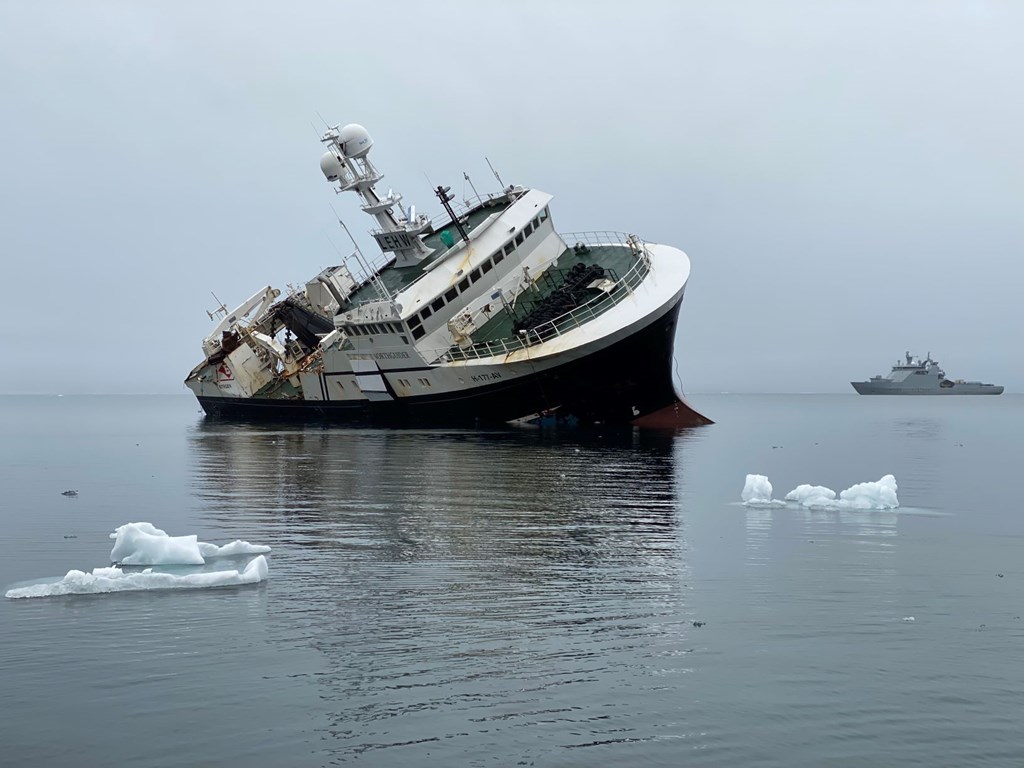Second attempt to remove grounded fishing vessel underway in northern Svalbard
Last summer’s attempt to salvage the Northguider had to be called off after bad weather slowed efforts to refloat the vessel.

A Dutch salvage company is making a second attempt to remove the damaged fishing vessel Northguider from the waters of northern Svalbard.
The Northguider was abandoned and its 14 crew members rescued in dramatic fashion on December 28, 2018, after running aground in Hinlopenstretet while fishing for shrimp.
The Norwegian coast guard removed the ship’s 300 tons of fuel and stripped it of all other types of hazardous materials in the weeks that followed, but with the ship listing at an angle of 15 degrees and uncertainty about the extent of the damage resulted in a decision wait to salvage the vessel until summer.
[Norwegian Coast Guard in race against ice after trawler runs aground near Svalbard]
That effort had to be abandoned after bad weather slowed progress repairing the 12-meter-long, 5-meter-wide gash in the hull caused by the ship’s grounding. The salvage crew had hoped to repair the hull in order to be able to refloat the vessel and tow it to Bergen, Norway.
That method, however, requires relatively calm weather while the repairing the ship. In order to avoid having to give up salvaging the ship again this year, Smit Salvage, the firm responsible for removing it, will be cutting the Northguider in to 50 five-ton sections that will be loaded onto to a barge and sailed away.

The method is preferable to making a temporary repair on-site, according to Kystverket, Norway’s coastal administration, because the work can easily be stopped and restarted in the event of poor weather.
Smit Salvage is known for undertaking major salvage operations, including the raising of the Kursk, a Russian nuclear submarine that sank in the Barents Sea in 2000, and removing the cruise liner Costa Concordia after it ran aground on the Italian coast in 2012.
[Norwegian Arctic coastal waters are among the most dangerous]
The operation will be the northernmost salvage operation ever, according to Kystverket. Despite failing to remove the Northguider last year, Kystverket officials said the salvage operation, and the initial efforts to secure it, had provided valuable experience working in polar conditions.
Although the wreck is not considered to be a serious pollution threat, it must be removed because it is located in a nature preserve.
The salvage operation is expected to be completed in October. It gets underway a month after the ship’s captain was fined 35,000 kroner (about $3,840) for negligence and its owners 300,000 kroner for safety violations in connection with the grounding.
According to the ruling, the ship lacked proper safety systems for sailing in ice-filled waters in complete darkness.
[A joint Arctic emergency response network gets underway]
“The Northguider was fishing in a climatic and weather-demanding area, including ice, low temperatures, dark, and rapid changes in wind and weather conditions. There is also a lack of a map base, long distances to the rescue, and unstable radio coverage in this area,” Sølvi Elvedahl, a spokesperson for Sysselmannen, the territorial authority, said in connection with the ruling.
The court also found that the Northguider’s captain had been responsible for the ship running aground, putting the lives of the crew at risk and potentially polluting the waters of the strait.
“As the captain, he did not take sufficient measures to account for the fact that the ship was fishing in demanding conditions in polar waters, its position near land, the weather forecast, the reduced visibility due to darkness, snow and wind or that he was fishing in an area that had poor radio coverage and was affected by tidal currents,” the court said in its ruling.